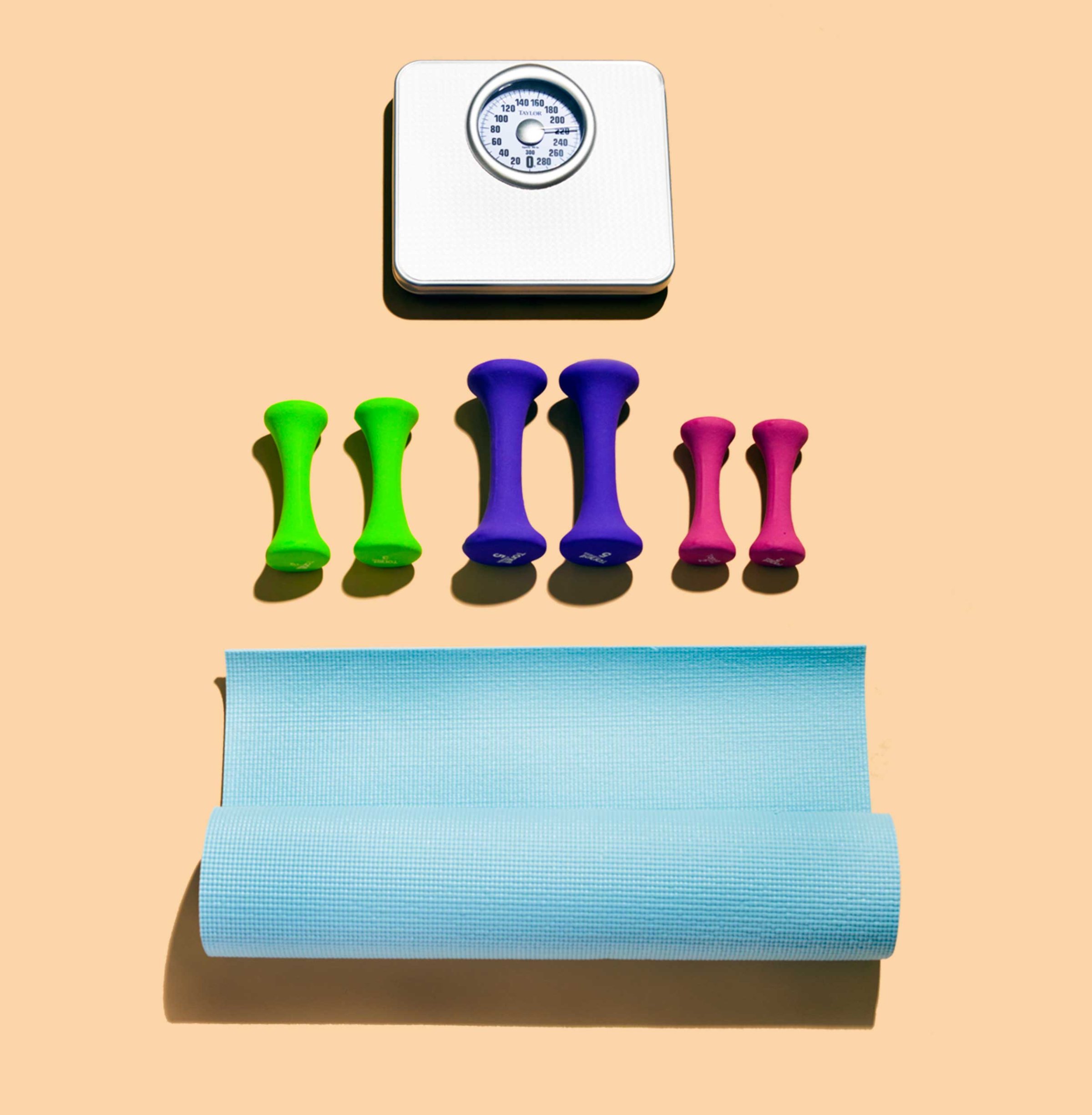
When clients come to me to lose weight, they often arrive mentally and physically defeated. “I’ve tried everything,” they tell me. “The weight doesn’t stay off.”
But as I’ve discovered, the real reason it’s so hard for us to maintain weight loss is a faulty belief system. We repeat certain myths that perpetuate yo-yo dieting.
Here are three falsehoods surrounding weight loss and how to shift your mindset to defeat them. Shed these beliefs, and you may finally shed the extra weight once and for all.
Myth #1: “You need to count calories to lose weight”
Commercial weight-loss programs are based on a calories-in, calories-out model, which is an oversimplification of how weight loss works. A study out recently from John Hopkins University researchers shows how ineffective this equation is.
Many programs don’t work, and the ones that perform the best—Weight Watchers or Jenny Craig—only helped participants lose 3-5% more weight than the control group.
A better equation is to balance your physiology. Weight loss is often a side effect of eating the foods that help clear up nagging symptoms like fatigue and cravings (and sometimes they can also help alleviate more serious ones like acid reflux and pre-menstrual symptoms, too).
The first step to balance your body is to focus on nutrient-rich foods. When this happens, your hunger feels under control and you feel more satiated because your body isn’t hungry.
Myth #2: Losing weight is all about how much you eat and work out
It’s easy to think this, but other factors—like stress, lack of sleep and exposure to environmental toxins—can actually change how calories get computed in the body.
Just consider a study published in the Obesity Research and Clinical Practice journal: It found that people are 10% heavier today than those who ate and exercised the same amount in the 1980s—so it’s clearly not as simple as burning more calories than you take in.
A better question than, “Am I at a caloric deficit?” is, “What can I add into my life to balance my hormones and myself?” Balanced hormones help your body maximize weight-loss efforts. Getting more sleep, drinking more filtered water and prioritizing deep self-care, like learning to be comfortable saying no, could actually do more to help you lose weight.
Read more: 5 Ways Meditating Can Help Your Career
Myth #3: A Paleo diet will work for you because it worked for your friend or a celebrity
While many realize that different foods work for different bodies, people often assume this difference means following a Paleo or vegan eating plan. However, a study performed by Israeli researchers found that the same foods elevated different people’s blood-sugar levels—which control appetite, cravings and hormones—at different rates. In other words, “good” and “bad” foods are unique to the individual.
Read more: 3 Signs Your ‘Good’ Habits Are Holding You Back
Learning how your blood sugar works is one of the most powerful tools you have for learning what your body responds best to. A quick and easy way to figure out your baseline blood-sugar response is an experiment I give to all my clients: Eat a vegetarian, Mediterranean and Paleo lunch on three different days. Each day, observe how you feel for the rest of the afternoon. How you eat at one meal sets up your blood sugar for the next three to five hours. If you’re still hungry, crashing or needing a snack, you can rule out that type of diet.
If you feel full, satiated and focused, you know that way of eating is a good starting point for you. There are nuances within these three diet “camps,” of course, but this test will provide you with a good starting point.
Ali Shapiro, M.S., is a health coach.
More Must-Reads From TIME
- The 100 Most Influential People of 2024
- The Revolution of Yulia Navalnaya
- 6 Compliments That Land Every Time
- What's the Deal With the Bitcoin Halving?
- If You're Dating Right Now , You're Brave: Column
- The AI That Could Heal a Divided Internet
- Fallout Is a Brilliant Model for the Future of Video Game Adaptations
- Want Weekly Recs on What to Watch, Read, and More? Sign Up for Worth Your Time
Contact us at letters@time.com